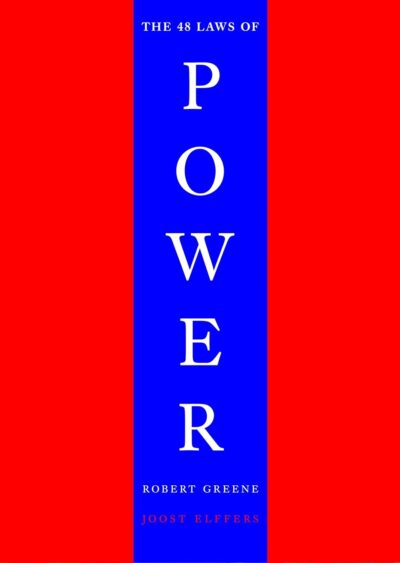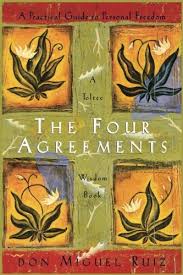99 Results in the "Self-Help & Personal Development" category
Biography & Memoir (434)
Books Like (8)
Business & Finance (26)
Children’s Fiction (176)
Dystopian (16)
Education & Learning (9)
Fantasy (1144)
fashion (1)
Fiction (4224)
Health & Wellness (21)
Historical Fiction (504)
Horror (159)
Literary Fiction (747)
Non-Fiction (1190)
Novel (229)
Others (82)
Philosophy (128)
Poetry (208)
Politics & History (125)
Posts (62)
Psychology (46)
Religion & Spirituality (1)
Romance Novel (525)
Science & Technology (82)
Science Fiction (200)
Thriller / Mystery (776)
Travel & Adventure (2)
True Crime (55)
view (96)
Young Adult (214)
-
 Law 29 of The 48 Laws of Power, "Plan All The Way to the End," highlights the necessity of foresight and strategic planning to ensure long-term success. The core message of this law is that those who rush into action without fully considering the consequences are likely to suffer unexpected failures. True power lies in thinking ahead, anticipating obstacles, and preparing countermeasures long before they are needed. Success is not merely about achieving short-term victories but about maintaining those…
Law 29 of The 48 Laws of Power, "Plan All The Way to the End," highlights the necessity of foresight and strategic planning to ensure long-term success. The core message of this law is that those who rush into action without fully considering the consequences are likely to suffer unexpected failures. True power lies in thinking ahead, anticipating obstacles, and preparing countermeasures long before they are needed. Success is not merely about achieving short-term victories but about maintaining those…-
215.9 K • Ongoing
-
-
Chapter
Seeds
 The Seeds phase marks the beginning of the creative process, offering a vital space for exploration and curiosity. At this early stage, creators are encouraged to gather anything that piques their interest without judgment or comparison, allowing ideas to emerge organically. Much like casting a fishing line and patiently waiting for a catch, this phase is about being open to whatever inspiration comes, whether it manifests in the form of a fleeting thought, an image, a melody, or an unexpected connection…
The Seeds phase marks the beginning of the creative process, offering a vital space for exploration and curiosity. At this early stage, creators are encouraged to gather anything that piques their interest without judgment or comparison, allowing ideas to emerge organically. Much like casting a fishing line and patiently waiting for a catch, this phase is about being open to whatever inspiration comes, whether it manifests in the form of a fleeting thought, an image, a melody, or an unexpected connection…-
341.4 K • Ongoing
-
-
 Law 6 of The 48 Laws of Power teaches that attention is a form of currency, and those who command it wield influence over others. People are naturally drawn to what stands out, making visibility a powerful tool for those who seek authority, success, or recognition. Whether through scandal, spectacle, or an air of mystery, those who master the art of attracting and maintaining attention secure their position in society while those who remain unseen risk fading into irrelevance. P.T. Barnum, the legendary…
Law 6 of The 48 Laws of Power teaches that attention is a form of currency, and those who command it wield influence over others. People are naturally drawn to what stands out, making visibility a powerful tool for those who seek authority, success, or recognition. Whether through scandal, spectacle, or an air of mystery, those who master the art of attracting and maintaining attention secure their position in society while those who remain unseen risk fading into irrelevance. P.T. Barnum, the legendary…-
215.9 K • Ongoing
-
-
 Law 40 of The 48 Laws of Power , titled "Despise the Free Lunch," emphasizes the hidden costs and potential traps associated with accepting something for nothing. Robert Greene argues that free offerings often come with unseen obligations, manipulations, or compromises that can erase independence and create vulnerabilities. By paying for what one receives, a person not only maintains autonomy but also reinforces the principle that true value necessitates a fair exchange, safeguarding their position and…
Law 40 of The 48 Laws of Power , titled "Despise the Free Lunch," emphasizes the hidden costs and potential traps associated with accepting something for nothing. Robert Greene argues that free offerings often come with unseen obligations, manipulations, or compromises that can erase independence and create vulnerabilities. By paying for what one receives, a person not only maintains autonomy but also reinforces the principle that true value necessitates a fair exchange, safeguarding their position and…-
215.9 K • Ongoing
-
-
Chapter
Be Impeccable with Your Word
 Chapter 2: THE FIRST AGREEMENT Be Impeccable with Your Word THE FIRST AGREEMENT IS THE MOST IMPORTANT ONE and also the most difficult one to honor. It is so important that with just this first agreement you will be able to transcend to the level of existence I call heaven on earth.The first agreement is to be impeccable with your word. It sounds very simple, but it is very, very powerful.Why your word? Your word is the power that you have to create. Your word is the gift that comes directly from God. The…
Chapter 2: THE FIRST AGREEMENT Be Impeccable with Your Word THE FIRST AGREEMENT IS THE MOST IMPORTANT ONE and also the most difficult one to honor. It is so important that with just this first agreement you will be able to transcend to the level of existence I call heaven on earth.The first agreement is to be impeccable with your word. It sounds very simple, but it is very, very powerful.Why your word? Your word is the power that you have to create. Your word is the gift that comes directly from God. The…-
90.9 K • Ongoing
-
-
Chapter
Spontaneity (Special Moments)
 Spontaneity plays a crucial role in the creative process, offering a unique dimension to artistic expression. This chapter explores whether works created in a moment of inspiration hold the same value as those meticulously crafted over time. It suggests that art is not necessarily defined by the duration of its creation but by the emotional impact it has on the audience. Whether a piece takes years to refine or emerges effortlessly in a single sitting, its significance lies in its ability to connect with…
Spontaneity plays a crucial role in the creative process, offering a unique dimension to artistic expression. This chapter explores whether works created in a moment of inspiration hold the same value as those meticulously crafted over time. It suggests that art is not necessarily defined by the duration of its creation but by the emotional impact it has on the audience. Whether a piece takes years to refine or emerges effortlessly in a single sitting, its significance lies in its ability to connect with…-
341.4 K • Ongoing
-
-
Chapter
LAW 18: The Dangers of Isolation
 Law 18 of The 48 Laws of Power warns against the dangers of isolation, arguing that retreating into seclusion for self-protection can lead to vulnerability and loss of influence. While it may seem that isolating oneself creates safety, it often disconnects a person from critical information, relationships, and the pulse of the world, leaving them exposed to unseen threats. Power thrives in networks and connections, and cutting oneself off can turn even a strong position into a fragile one. The story of…
Law 18 of The 48 Laws of Power warns against the dangers of isolation, arguing that retreating into seclusion for self-protection can lead to vulnerability and loss of influence. While it may seem that isolating oneself creates safety, it often disconnects a person from critical information, relationships, and the pulse of the world, leaving them exposed to unseen threats. Power thrives in networks and connections, and cutting oneself off can turn even a strong position into a fragile one. The story of…-
215.9 K • Ongoing
-
-
Chapter
Chapter 78: Areas of Thought
 Areas of Thought play a crucial role in the exploration of creativity, as this chapter illustrates a broad and intricate picture of the artistic process. It emphasizes that creation is not a privilege limited to a select few but an intrinsic aspect of human nature. Every individual, regardless of profession or background, possesses an inherent ability to generate ideas and express them in unique ways. At the heart of this concept is "Tuning In," a state of attunement with the boundless source of creativity…
Areas of Thought play a crucial role in the exploration of creativity, as this chapter illustrates a broad and intricate picture of the artistic process. It emphasizes that creation is not a privilege limited to a select few but an intrinsic aspect of human nature. Every individual, regardless of profession or background, possesses an inherent ability to generate ideas and express them in unique ways. At the heart of this concept is "Tuning In," a state of attunement with the boundless source of creativity…-
341.4 K • Ongoing
-
-
Chapter
The Prism of Self
 "The Prism of Self" delves into the intricate and ever-changing nature of individual identity, arguing that defining a singular, unchanging self is both challenging and unrealistic. Instead of adhering to the notion of a fixed identity, the chapter suggests that people embody a multitude of selves, each emerging in response to varying circumstances and moments in time. These variations are shaped by a range of factors, including emotional states, energy levels, personal histories, and even physical…
"The Prism of Self" delves into the intricate and ever-changing nature of individual identity, arguing that defining a singular, unchanging self is both challenging and unrealistic. Instead of adhering to the notion of a fixed identity, the chapter suggests that people embody a multitude of selves, each emerging in response to varying circumstances and moments in time. These variations are shaped by a range of factors, including emotional states, energy levels, personal histories, and even physical…-
341.4 K • Ongoing
-
-
 Effortlessness is a key concept in Law 30 of The 48 Laws of Power, which emphasizes the importance of making one's achievements appear effortless, a strategy that enhances perception and influence. The principle behind this law is to maintain an aura of natural ability, suggesting that success comes with ease, even if the reality involves significant effort and meticulous planning. Greene suggests that this tactic not only elevates one's status but also positions the individual as a person of remarkable…
Effortlessness is a key concept in Law 30 of The 48 Laws of Power, which emphasizes the importance of making one's achievements appear effortless, a strategy that enhances perception and influence. The principle behind this law is to maintain an aura of natural ability, suggesting that success comes with ease, even if the reality involves significant effort and meticulous planning. Greene suggests that this tactic not only elevates one's status but also positions the individual as a person of remarkable…-
215.9 K • Ongoing
-
- Previous 1 … 8 9 10 Next
